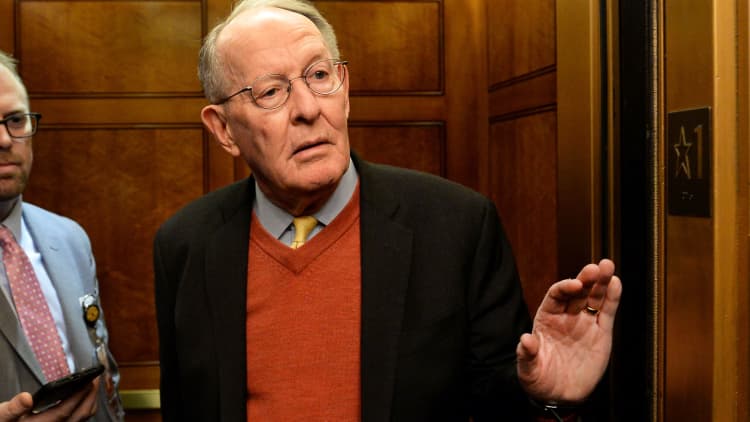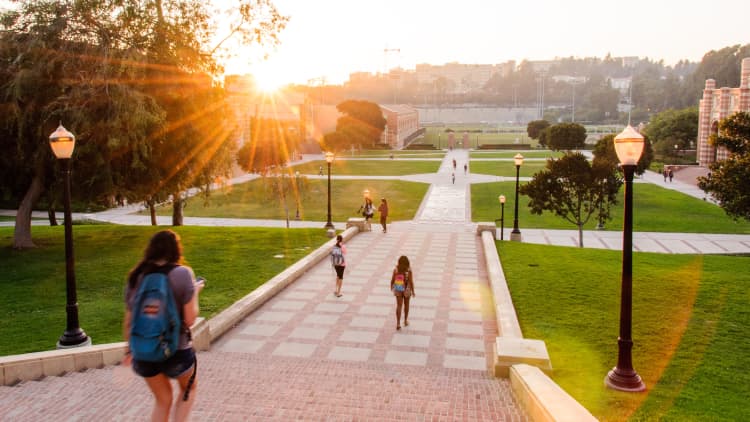
Sen. Lamar Alexander told CNBC on Tuesday the federal government should provide additional funding to schools and colleges to help them reopen for in-person class this fall.
"The surest step back to normalcy in our country is when 70-75 million college and high school and elementary school students go back to school," the Tennessee Republican said on "Squawk Box." "If we need more money for that, I'm for that."
Alexander's comments come as lawmakers debate the need for additional relief packages to offset the impact of Covid-19. The $2.2 trillion CARES Act passed in March provided $13.5 billion in grants for K-12 schools in an Education Stabilization Fund. Funding also was made available to colleges and universities.
Schools need funding to help cover services such as expanding busing, as well as personal protective equipment and coronavirus testing, Alexander said. "We should spend that money for schools and for colleges."
Education administrators at all levels are developing plans for fall classes, after the coronavirus pandemic prompted many schools to switch to remote instruction beginning in mid-March.
Nearly 65% of colleges are planning for in-person classes this fall, according to the Chronicle of Higher Education, which is tracking the decisions of more than 1,000 schools.
Colleges are taking various approaches, such as moving up the semester's start date in order to finish classes before Thanksgiving break, citing concerns of a second wave of Covid-19 cases. Many universities also say they are reducing class sizes to allow for social distancing and instituting strict policies on face masks.
Adaptations are taking place at the primary and secondary education levels, too. Detroit Public Schools Community District, for example, has proposed turning cafeterias and auditoriums into classrooms while instituting daily screenings for Covid-19 symptoms.
At a time of dramatic upheaval in how they teach students, many districts also are facing cuts in state funding as states grapple with a steep decline in tax revenue brought about by the pandemic. There has been a back-and-forth in Washington about whether to provide additional funding to states. An already-passed Democratic relief bill in the House does so, but the broader piece of legislation has been a nonstarter for the Republican-controlled Senate.
Alexander, education secretary under President George H.W. Bush, said he believes that with proper planning schools can be "among the safest little communities" in the country during the pandemic. He also stressed the difficulty of delivering proper instruction to students when they are only at home.
"What you have to do to manage this disease we know. Distance, masks, are two of the things that you have to do, and washing your hands," Alexander said, who also cited that young people have a lower risk of severe illness from Covid-19.
Schools that reopen and then face an outbreak could just shut down for a few weeks so it can be contained, Alexander said, contending that similar strategies are used when outbreaks of seasonal influenza occur.
"You don't close the whole school system. You close that school, so that's why we need widespread testing, particularly of the teachers and the older people in the school," he said.
"There is a risk of going back to school," Alexander acknowledged. "In my view, there is a greater risk of not going back to school and the damage it will do to the children, and to the parents and to the economy."



